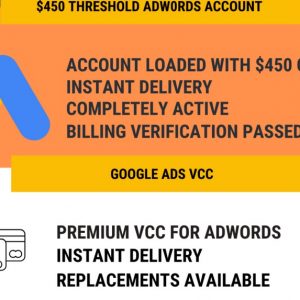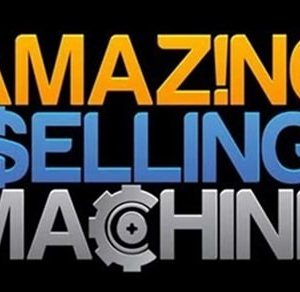E-commerce Mentoring – Ecom King Vault
$8,000.00 Original price was: $8,000.00.$99.00Current price is: $99.00.
The beroas calculator is an essential tool for anyone serious about building a profitable e-commerce business. Understanding its functionalities and how to leverage it correctly can significantly impact your bottom line and overall success. This guide will explore everything you need to know.
Table of Contents
Beroas Calculator

The beroas calculator represents more than just a simple tool; it embodies a strategic approach to understanding the financial viability of e-commerce ventures. It provides a framework for assessing potential profitability, taking into account various costs and revenue projections. It moves beyond mere speculation, enabling data informed decisions and mitigating risks, particularly for newcomers navigating the complexities of online business. Having a firm grasp on the numbers, through a beroas calculator, makes the difference between thriving and simply surviving in the competitive ecommerce landscape.
For individuals just embarking on their e-commerce voyage to seasoned entrepreneurs looking to scale significantly, a beroas calculator is a powerful ally, transforming the process into a manageable, calculable, and ultimately more successful endeavor. Using a tool like this allows you to identify hidden costs, optimize pricing strategies, and focus on the products with the highest potential return on investment. This proactive approach ensures you’re not just throwing money into the wind but intentionally building a sustainable and prosperous online business.
Demystifying the Beroas Formula
The core of the beroas calculator lies in its ability to synthesize various financial inputs into a clear profitability forecast. At its essence, it’s about understanding the relationship between revenue, costs, and ultimate profit margin. It’s not magic; it’s smart accounting applied specifically to the ecommerce context. Breaking down the formula involves identifying all relevant expenses – from the cost of goods sold (COGS) to marketing expenditure, fulfillment costs, and operational overheads. Revenue, on the other hand, needs to be projected based on realistic sales volumes and pricing strategies.
The disparity between these two totals then unveils the profit (or potential loss). What truly sets a sophisticated beroas calculator apart is its ability to incorporate dynamic variables; meaning, considerations must be applicable irrespective of market fluctuations, seasonal trends, and evolving advertising costs. Therefore, a genuinely useful beroas calculator demands a precise understanding of data collection and analysis, as well as the ability to adapt to evolving market conditions for sustained success.
Inputting Data for Maximum Accuracy
Garbage in, garbage out – this old computing adage applies perfectly to the beroas calculator. The accuracy of your profitability projections directly depends on the precision and comprehensiveness of the data you feed into the system. This means diligently tracking all costs associated with your e-commerce operation. The more detail you can enter, the more accurate your results will be. This includes the cost of acquiring raw materials, manufacturing, packaging, shipping, advertising, software subscriptions, and even the hidden costs of returns and customer service. Don’t overlook any expense; even the small ones can add up and significantly impact your bottom line. Similarly, revenue projections must be as realistic as possible. Avoid overly optimistic sales forecasts and instead base your assumptions on market research, historical data, and industry benchmarks.
Interpreting Results and Making Informed Decisions
The beroas calculator generates valuable insights into the financial health of your e-commerce business, but it is crucial to understand how to interpret the results effectively and translate those insights into actionable strategies. Once you have your profitability forecast, take the time to analyze each individual component. Where are your biggest expenses? Which products are generating the highest profit margins? Are your marketing campaigns delivering an acceptable return on investment? By identifying areas where costs can be reduced or revenue can be increased, you can optimize your business operations and improve your overall profitability.
For instance, if shipping costs are eating into your margins, explore alternative fulfillment options or negotiate better rates with your carriers. If certain products are consistently underperforming, consider discontinuing them or adjusting your pricing strategy. Remember, the beroas calculator is a tool for continuous improvement. Use it to monitor your performance over time, identify trends, and make data-driven decisions that will propel your e-commerce business towards success.
Ecommerce Mentor
An ecommerce mentor fills a crucial role in the journey of launching and scaling an online business, providing guidance, support, and expertise that accelerates learning and minimizes costly mistakes. This mentorship goes beyond simply sharing information; it involves a personalized approach tailored to the specific needs and challenges faced by the mentee. A skilled ecommerce guide acts as a sounding board, a strategist, and a source of motivation, helping entrepreneurs navigate the ever-changing landscape of online retail. Finding a mentor who has already walked the path and achieved success can be invaluable, offering insights that are difficult to obtain through books, courses, or even formal education. A great ecommerce mentor can accelerate your progress and help you create a thriving, sustainable online business. Their experience-based knowledge can provide an edge over your competitors, equipping you with strategies that have been proven to work.
Finding the Right Mentor for Your Needs
Securing the ideal ecommerce mentor is a pivotal step in launching and scaling a triumphant online business. The secret lies in pinpointing a mentor whose experience, skill set, and expertise directly align with your precise business requirements. The best mentors aren’t necessarily the ones with the flashiest credentials or the biggest followings; they’re the ones who understand your niche, your target audience, and your unique challenges. Seek a mentor who has successfully navigated similar obstacles and achieved the kind of results you aspire to achieve. Don’t hesitate to ask potential mentors about their past experiences, their areas of expertise, and their mentorship style. Equally as important is establishing clear expectations from the start. Discuss your goals, your needs, and the level of support you’re seeking. Make sure you and your mentor are on the same page and agree on a framework for your mentorship relationship before moving forward.
Benefits of Having an Ecommerce Mentor
The advantages of working with an ecommerce mentor are multifaceted and can significantly impact your business trajectory. This includes receiving personalized, tailored guidance. Mentors can assess your specific strengths and weaknesses, offering tailored advice that addresses your unique challenges. Moreover, they grant immediate feedback on ideas, strategies, and decisions, preventing mistakes before they happen. In addition, mentors share their own experiences, both successes and failures, offer invaluable insights that can’t be learned from textbooks. With access to their network of contacts, including suppliers, partners, and other industry professionals creates doors, leading to opportunities you might not have found on your own. An ecommerce mentor is an accountability partner, pushing you to stay focused on your goals and providing support during challenging times.
Cultivating a Successful Mentorship Relationship
Nurturing a successful mentorship relationship necessitates open communication, mutual respect, and a proactive attitude from both the mentor and mentee. Transparency is key. Be honest with your mentor about your struggles, your doubts, and your successes. Share your data, your metrics, and your results so they can provide informed guidance. Active listening is equally critical. Pay attention to your mentor’s advice and feedback, and take the time to reflect on their perspective. Don’t be afraid to ask questions and challenge their assumptions, but always do so respectfully. Show appreciation for your mentor’s time and effort, and acknowledge their contributions to your success. Remember, a mentorship is a two-way street. Be prepared to contribute to the relationship by sharing your own insights and ideas. Most importantly, be willing to implement your mentor’s advice and take action. The best mentorship relationships are built on trust, mutual respect, and a shared commitment to achieving success.
Beroas
Beroas represents a distinct perspective on e-commerce success, emphasizing not just financial gains but also the practical application of proven strategies and a commitment to real-world results. It’s about embracing a mindset of continuous learning, adaptation, and relentless execution. Within the vast landscape of online retail, Beroas champions a no-nonsense approach, prioritizing actionable knowledge and tangible outcomes. It’s about cutting through the hype and focusing on the fundamental principles that drive sustainable growth.
The Beroas Mindset: Action and Results
The Beroas mindset is characterized by a relentless focus on action and results. It’s about moving beyond passive learning and actively implementing strategies that drive sales and improve profitability. This proactive approach requires a willingness to take risks, experiment with new ideas, and learn from mistakes. The Beroas mindset also emphasizes the importance of data-driven decision-making. It’s not enough to simply have hunches or gut feelings; you need to back up your decisions with evidence and track your progress diligently. This requires embracing analytics and using data to identify areas for improvement. Furthermore, the Beroas mindset is about continuous learning and adaptation. The e-commerce landscape is constantly changing, so it’s vital to stay up-to-date on the latest trends, technologies, and best practices. This involves reading industry blogs, attending conferences, and networking with other e-commerce professionals.
Beroas Strategies for E-commerce Success
The Beroas approach encompasses a variety of strategic actions carefully designed to optimize e-commerce endeavors. These encompass comprehensive market research to precisely determine niches and identify prospective customers, and the implementation of a conversion-optimized website design to improve the user experience and ultimately boost sales. It stresses the utilization of paid advertising platforms, which includes Google Ads and social media marketing, to actively target focused demographics and increase traffic, and the strategic use of SEO methods to enhance organic visibility and domain ranking. Beyond this, the Beroas methodology advocates for the development of engaging content that will resonate with customers and generate brand loyalty, as well as the employment of data analytics to monitor performance and make calculated adjustments to strategies. Each effort emphasizes practical application and results-oriented strategies.
Integrating Beroas in Your E-commerce Business
Incorporating the Beroas philosophy into your e-commerce strategy entails a thorough transformation of your strategic methods, emphasizing concrete actions and visible outcomes. Begin by evaluating your existing workflows and procedures to determine opportunities for optimization and efficiency enhancements to ensure your current activities remain in line with Beroas standards, and embrace a culture of perpetual learning by often upgrading your skills in fields such as data interpretation, marketing strategies, and optimization approaches. Encourage a results-oriented environment across your team, emphasizing responsibility and the concrete actions required to meet objectives. Additionally, streamline procedures to improve efficiency and decrease bottlenecks, concentrating on areas such as order fulfillment, customer service, and logistics to make sure every activity is in line with the core tenets of Beroas. By consistently assimilating these concepts, you can greatly boost your effectiveness and stay ahead in a constantly changing e-commerce environment.
Collins Ecom
Collins ecom signifies a specific approach or brand associated with e-commerce education, strategies, or services offered by someone named Collins. Without more specific information, it is challenging to define its precise meaning, but one can infer that it represents a particular methodology or philosophy for achieving success in the world of online retail. It could be a training program, a consulting service, or even a specific type of software or tool designed to help e-commerce entrepreneurs.
Understanding the Collins Ecom Approach
Without specifics, the Collins ecom approach is generally characterized by its focus on practical, actionable advice and strategies that deliver tangible results. It prioritizes knowledge and proven techniques over hype and theory and emphasizes the importance of data-driven decision-making and continuous improvement. This may come from the need to adapt to dynamic market conditions and a drive to learn from each transaction processed through the Collins ecom system. The basic tenets of the approach are a commitment to excellence and a desire to empower e-commerce entrepreneurs to achieve their goals.
Key Strategies within Collins Ecom
Assuming a strategic framework, Collins ecom likely incorporates several fundamental strategies essential for e-commerce success. These might include several methods:
- Niche selection: Identifying profitable niches with high demand and low competition.
- Product sourcing: Finding reliable suppliers and securing competitive pricing.
- Website optimization: Optimizing an e-commerce store for conversions and user experience.
- Marketing and advertising: Implementing effective marketing campaigns to drive traffic and generate sales on social media and more organic mediums.
- Customer service: Providing excellent customer service to build loyalty and generate repeat business.
Implementing the Collins Ecom Framework
Implementing the Collins ecom framework, based on the common e-commerce best practices, requires understanding the core principles and strategies and applying them consistently to your business operations. This might involve:
- Conducting thorough market research: Identifying opportunities and validating product ideas.
- Developing a comprehensive business plan: Setting goals, outlining strategies, and tracking progress.
- Building a high-converting website: Optimizing your store for speed, usability, and mobile responsiveness.
- Creating compelling product descriptions: Highlighting the benefits of your products and enticing customers to buy.
- Implementing effective marketing campaigns: Driving traffic to your store and generating sales.
- Providing excellent customer service: Building relationships with customers and resolving issues quickly and efficiently.
Roi Ecomm
ROI ecomm is a shorthand term that represents the concept of “Return on Investment” specifically within the context of e-commerce. It signifies the measurement of profitability and efficiency of various e-commerce activities, from marketing campaigns to inventory management. Understanding and maximizing ROI ecomm is crucial for any online business seeking sustainable growth and long-term success. It provides a clear picture of which strategies are working, which are not, and where resources should be allocated to maximize returns.
Calculating ROI in E-commerce: The Formula and its Components
Calculating ROI ecomm requires a simple formula: (Net Profit / Cost of Investment) x 100. However, accurately defining the components of this formula is essential. Net profit refers to the total revenue generated from a specific activity minus all associated costs. This includes the cost of goods sold (COGS), marketing expenses, advertising costs, shipping fees, and any other relevant overhead. Cost of investment represents the total amount of money spent on the specific activity you are measuring. The result of the calculation is then multiplied by 100 to express the ROI as a percentage. A higher percentage indicates a more profitable investment.
Strategies to Improve ROI in E-commerce
Improving ROI ecomm involves a multifaceted approach focused on optimizing various aspects of your online business. This might include several methods:
- Optimizing Marketing Campaigns: Refining your targeting, ad copy, and landing pages to increase conversion rates.
- Improving Website Conversion Rates: Enhancing website design, product page layouts, and checkout processes to reduce cart abandonment.
- Negotiating Better Supplier Pricing: Reducing the cost of goods sold (COGS) to increase profit margins.
- Streamlining Operations: Automating tasks and improving efficiency to reduce operational costs.
- Enhancing Customer Retention: Building relationships with customers and encouraging repeat purchases to increase lifetime value.
- Reducing Shipping Costs: Negotiate contracts with carriers to get lower shipping prices.
Tools and Techniques for Tracking ROI Ecomm
Tracking ROI ecomm effectively requires the use of appropriate tools and techniques. Web analytics platforms like Google Analytics provide valuable data on website traffic, conversion rates, and sales performance. E-commerce platforms often offer built-in reporting features that track key metrics such as revenue, expenses, and profit margins. Marketing automation software can help measure the ROI of individual marketing campaigns by tracking click-through rates, conversion rates, and revenue generated. Spreadsheet software can be used to compile and analyze data from various sources to calculate overall ROI. Furthermore, A/B testing allows you to compare different versions of your website, ads, or marketing materials to identify which performs best and optimizes your ROI. By adopting these tools and strategies, e-commerce businesses can gain a better understanding of their financial performance and make informed decisions on where to invest their resources.
Soulja Ecom
Soulja ecom, like “Collins ecom,” likely represents a specific brand, methodology, or educational program associated with e-commerce success, possibly named after a person (perhaps a well-known influencer or entrepreneur in the e-commerce space). Without more specific information, it’s difficult to pinpoint its exact meaning, but it can be inferred that it emphasizes a distinct approach to building and scaling an online business, potentially characterized by unique strategies, tactics, or a particular philosophy. It most likely entails a collection of resources and tactics to help other users in the e-commerce space become successful with Soulja ecom, with the main goal being to allow people to build their businesses through digital channels by providing them with cutting-edge training.
The Core Principles of Soulja Ecom
Without precise details, one might infer that the core principles of Soulja ecom likely revolve around several key elements, emphasizing a bold, unconventional approach to e-commerce. These could include one or more methods or strategies, with a primary focus on:
- Innovation: Encouraging creative thinking and innovative strategies to stand out from the competition.
- Disruption: Challenging traditional e-commerce models and disrupting established markets.
- Speed: Emphasizing rapid execution and agility to capitalize on emerging opportunities.
- Automation: Streamlining processes with marketing software to accelerate efficiency.
- Community: fostering a supportive community of like-minded entrepreneurs to share knowledge and collaborate.
Soulja Ecom Strategies for Rapid Growth
Given the implied emphasis on speed and innovation, Soulja ecom strategies are designed for rapid growth and scalability. These strategies might include:
- Viral marketing: Creating engaging content that spreads rapidly across social media to generate brand awareness.
- Influencer marketing: Collaborating with influencers to promote products and reach a wider audience.
- Growth hacking: Employing unconventional marketing tactics to drive rapid customer acquisition.
- Drop Shipping: Selling products without needing warehouses by depending on vendors.
- AI tools: Using different AI services or platforms for digital marketing purposes and automation.
How to Integrate Soulja Ecom into Your Business
Integrating the principles of Soulja ecom into an existing e-commerce business requires a willingness to embrace change, experiment with new ideas, and challenge conventional wisdom. This involves:
- Identifying opportunities for innovation: Looking for ways to differentiate your products, services, or marketing efforts.
- Embracing a growth mindset: Continuously seeking new ways to improve and scale your business.
- Building a strong team: Recruiting talented individuals who are passionate about e-commerce and willing to take risks.
- Leveraging technology: Embracing new technologies to automate tasks and improve efficiency.
- Fostering a culture of experimentation: Encouraging experimentation and learning from both successes and failures.&
Ecom Knockout
Ecom knockout suggests a competitive or highly effective strategy in the e-commerce arena, something that delivers a decisive win or significant advantage. It could refer to a specific product, service, technique, or overall approach that allows e-commerce businesses to outperform their competitors and achieve remarkable results. It is typically a tactic or strategy that has been carefully crafted to deliver a swift and significant advantage in the market, akin to a knockout blow in a boxing match.
Defining the Ecom Knockout Strategy
The ecom knockout strategy can be defined as a comprehensive and aggressive approach to e-commerce that aims to dominate the market and eliminate competition. It is characterized by a relentless focus on execution, data-driven decision-making, innovation, and customer satisfaction. A successful strategy will take every aspect of the business into account while pushing to innovate at every level. A key to these strategies is using a beroas calculator to make sure funds align. This provides your best chance to create the biggest impact with your strategy.
Key Elements of an Ecom Knockout
Successful Ecom Knockout strategies consists of strategic actions carefully designed to give the e-commerce venture a substantial advantage over competitors. It stresses an unrelenting attention to detail in all areas, from website creation to fulfillment logistics, as well as the efficient use of marketing channels to reach target audiences and outcompete the competition. Moreover, ecom knockout advocates the need to continually review strategies, utilizing data analytics and input to dynamically refine approaches. Each effort emphasizes proactive positioning to overwhelm rivals and achieve market leadership.
Implementing Your Own Ecom Knockout Tactics
Implementing your own ecom knockout strategy involves a comprehensive overhaul of your e-commerce operations, focusing on exceeding standard benchmarks and creating lasting value for clients. Begin by pinpointing specific areas where you can outperform rivals, such as providing specialized customer service, providing creative product offerings, or optimizing price strategies based on exhaustive competitor comparisons. Next, use high-performing platforms for website efficiency, marketing automation, and inventory control to streamline operations and increase efficiency.
Additionally, make use of data-driven decision-making by regularly monitoring metrics and making changes to strategies to optimize performance. Lastly, concentrate on creating memorable customer journey, emphasizing personalization, prompt customer assistance, and loyalty programs to strengthen client connections and brand advocacy. By diligently focusing on these core components, you can transform your e-commerce strategy into an ecom knockout, placing your company for sustained growth and market authority.
Ecommerce mentoring
Ecommerce mentoring is a specialized form of guidance and support focused specifically on helping individuals navigate the complexities of building and scaling an online business. It involves a one-on-one relationship between an experienced ecommerce entrepreneur (the mentor) and someone who is newer to the field (the mentee). The mentor provides advice, shares insights, and offers practical guidance based on their own experiences, helping the mentee avoid common pitfalls and accelerate their path to success. It is more than just providing instruction; it’s about building a relationship based on trust, mutual respect, and a shared commitment to achieving goals.
What to Expect From Ecommerce Mentoring
In ecommerce mentoring, people can anticipate gaining access to tailored information, guidance, and resources customized to their specific company objectives and difficulties. Mentors offer assistance with a wide array of issues, such as refining company concepts, creating sales channels, maximizing marketing budget, selecting suppliers, streamlining operations, and improving the customer experience. Through consistent contact, frequently via scheduled sessions and ongoing feedback sessions, mentees acquire the capacity to enhance their decision-making abilities, acquire helpful sector knowledge, and sidestep typical errors. Furthermore, ecommerce mentoring connects people to an extensive network of industry experts, prospective collaborators, and resources for assistance to boost their professional development and success.
Finding the Right Ecommerce Mentor
The process of finding the right ecommerce mentor involves taking into account elements like knowledge, background, instruction style, and philosophical alignment. To begin, consider mentors with proven expertise in your chosen industry or business model, and carefully assess their qualifications and previous achievements. Second, seek out mentors with an ideal mentoring style, who are happy to discuss their insights, provide constructive feedback, and adapt their method to your particular needs. Also, it is important to find a mentor who shares your principles, goals, and work style in order to promote greater collaboration and understanding. Ultimately, it’s about finding a mentor who stimulates and motivates you to reach your professional objectives.
Long-Term Benefits of Ecommerce Mentoring
Engaging in ecommerce mentoring provides a variety of long-term rewards that go beyond quick fixes, leading to continued growth and success in the fast-paced realm of online retail. Mentors enable people to acquire crucial competencies in marketing, finance, operations, and leadership, helping the ability to adapt and take calculated decisions due to their considerable understanding and experience. Also, ecommerce mentoring strengthens connections within the industry, allowing individuals to network, work with other people, and gain exposure, which improves their ability to grasp new opportunities and maintain their competitive edge. In addition, it promotes confidence and resilience by teaching people how to overcome challenges, adjust to change, and keep focused on success. As a result, committing to ecommerce mentoring pays off with sustainable growth, entrepreneurial performance, and long-term success.
Conclusion
The journey to e-commerce success is fraught with challenges, but armed with the right tools and guidance, anyone can thrive. Utilizing a beroas calculator for financial clarity, finding a skilled ecommerce mentor, embracing the Beroas mindset of action, leveraging targeted strategies like those endorsed by Collins ecom, focusing on ROI ecomm, incorporating innovative tactics from Soulja ecom, developing an ecom knockout strategy, and engaging in comprehensive ecommerce mentoring, you can significantly increase your odds of building a profitable and sustainable online business. Remember, success in e-commerce is not about overnight riches but about continuous learning, adaptation, and relentless execution.
Sales Page:_https://ecomkingvault.com/












Reviews
There are no reviews yet.